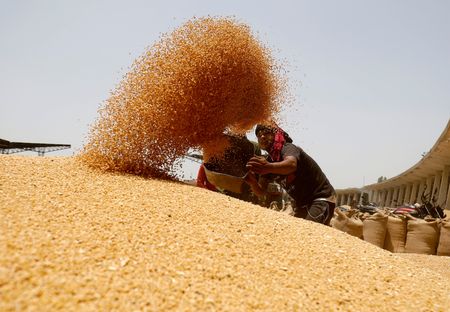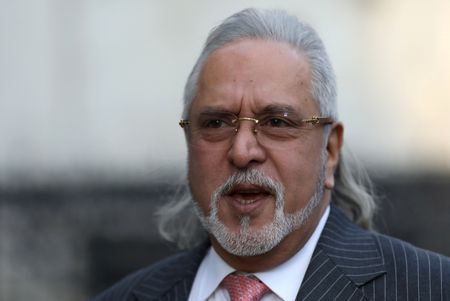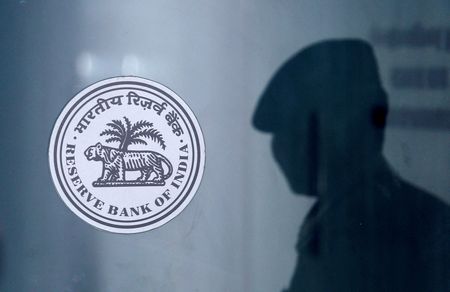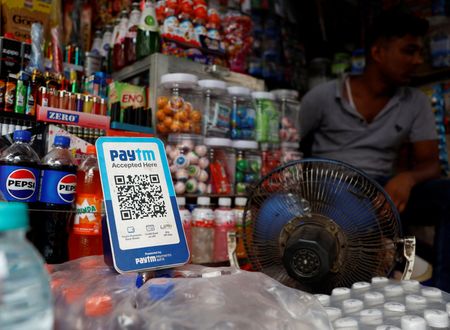By Rajendra Jadhav and Mayank Bhardwaj
MUMBAI/NEW DELHI (Reuters) -India has asked global and domestic trade houses to avoid buying new-season wheat from local farmers to help the government-backed Food Corporation of India (FCI) procure large quantities to shore up its depleting reserves, sources said.
India, the world’s biggest wheat consumer and grower after China, banned exports in 2022 and is keen to bolster stocks and tame prices that surged after dry weather hurt output in 2022 and 2023.
Rising wheat prices forced the government to sell record quantities to boost local supplies, leading to a drawdown in reserves essential for the world’s biggest food welfare programme, which entitles nearly 800 million to free grain.
The government has asked private traders to stay away from wholesale markets where farmers usually sell their produce to FCI or private traders, said traders and government sources, who declined to be named as they were not authorised to talk to the media.
The government informally asked private traders to avoid buying wheat at least in April, the sources said, its first such guidance since 2007. Wheat procurement starts tapering off after mid-May.
“We are not going to buy in April. We will wait until May. Except for processors and small traders, everyone is likely to follow the government’s lead,” said a Mumbai-based trader with a global trade house.
Traders active in India’s grain markets include Cargill Inc, Hindustan Unilever Ltd, ITC Ltd, Louis Dreyfus Company and Olam Group.
The government has asked the top wheat-growing states to ensure that private traders do not get in the way of FCI’s plans to buy at least 30 million metric tons this year, the sources said.
Most traders are likely to comply with the directive to avoid the government reimposing a limit on the amount of wheat they can hold which expired on March 31, traders said.
New Delhi has already asked traders, major retailers and food processors to declare wheat stocks every Friday from April to prevent hoarding and price spikes.
In 2023, FCI bought 26.2 million metric tons of wheat from local farmers, below its target of 34.15 million metric tons.
Because of last year’s lower purchases, wheat inventories in government warehouses fell to 9.7 million metric tons at the start of March, the lowest since 2017.
Lower wheat inventories tend to stoke open market prices.
Despite falling inventories, New Delhi has resisted calls for wheat imports as overseas purchases tend to anger farmers who form an influential voting bloc.
Millions of Indians will vote in the parliamentary election, which will be held from April 19.
India’s lower wheat stocks could force New Delhi to import 2 million metric tons of the grain this year, according to a United States Department of Agriculture report last week.
FCI is focused on Uttar Pradesh, a top producing state which has historically contributed less than 2% to FCI’s wheat procurement, with the state government asking railways not to provide freight cars to big traders in April, the sources said.
Uttar Pradesh has asked local authorities to ensure that big traders do not get to buy large quantities of wheat, according to a government letter addressed to district officials and seen by Reuters.
FCI recently started buying new wheat from farmers at a state-set 2,275 rupees ($27.29) per 100 kg against open market rates of around 2,500 rupees.
($1 = 83.35 rupees)
(Reporting by Rajendra Jadhav and Mayank Bhardwaj; editing by Tony Munroe, Bernadette Baum and Jan Harvey)









